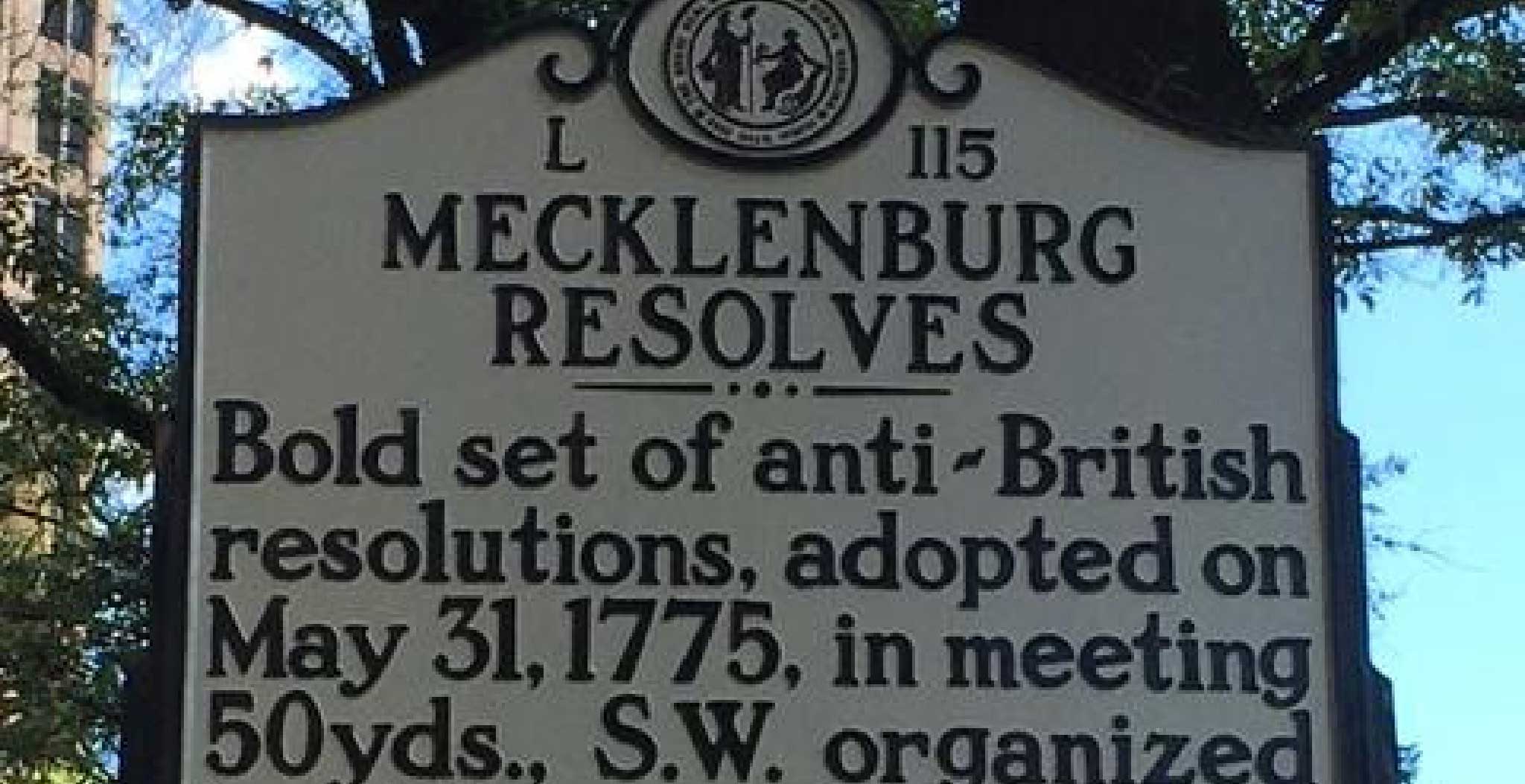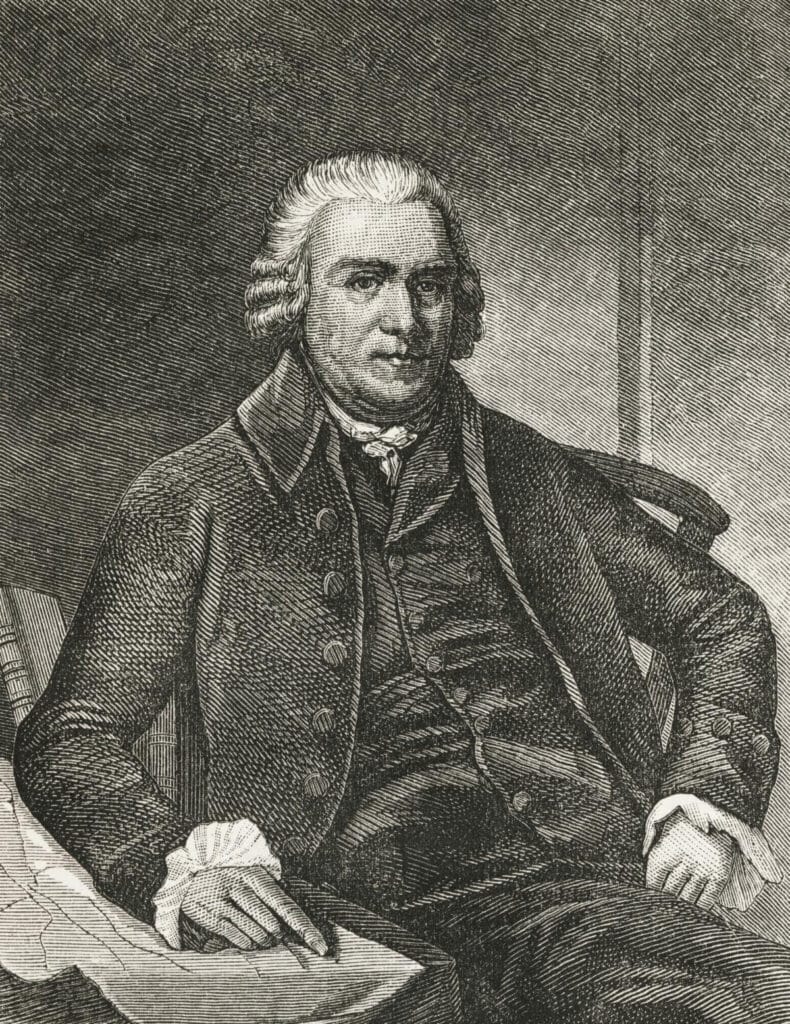The Fire of Freedom

On May 31, 1775, the citizens of Mecklenburg County, North Carolina seceded from the British Empire. They did this through a series of five resolutions called the Mecklenburg Resolves that were published in the North Carolina Gazette in New Bern on June 16, 1775. (At the time, New Bern was the capital of North Carolina.) These resolutions are highly reminiscent of the Declaration of Independence, and the similarity in language indicates that Americans at the time were in the habit of thinking and talking in this way. For example, the second resolve begins: “That we the citizens of Mecklenburg county, do hereby dissolve the political bands which have connected us to the Mother Country,…” The Declaration of Independence begins similarly: “When in the Course of human Events, it becomes necessary for one People to dissolve the Political Bands which have connected them with another,…” In what follows, we will examine the Mecklenburg Resolves to understand what the people who wrote and published them were determined to do.
The Mecklenburg Resolves, also called the Charlotte Town Resolves, were adopted at the Mecklenburg County courthouse in Charlotte, North Carolina just weeks after the British and Americans clashed at Lexington and Concord. In the second resolution, the North Carolinians identify a particular British outrage as the reason for the Resolves: “…and inhumanly shed the innocent blood of American patriots at Lexington.” The fighting in Massachusetts led to similar political responses in other parts of the country, but the citizens of Mecklenburg County made it clear that they were no longer bound by any acts or decrees of the King of England or the Parliament. Resolution 2: “Resolved, That we the citizens of Mecklenburg county, do hereby dissolve the political bands which have connected us to the Mother Country, and hereby absolve ourselves from all allegiance to the British Crown, and abjure all political connection, contact, or association, with that nation, who have wantonly trampled upon our rights and liberties—and inhumanly shed the innocent blood of American patriots at Lexington.”
It is interesting to note that the first resolution is a rather aggressive statement of the political attitude of the citizens of Mecklenburg County. “Resolved, That whoever directly or indirectly abetted, or in any way, form or manner, countenanced the unchartered and dangerous invasion of our rights, as claimed by Great Britain, is an enemy to this country—to America—and to the inherent and inalienable rights of man. ”We see at this time the coalescing of a militant stand for freedom and independence that one can see emerging in Boston in 1761 in the fight against writs of assistance which allowed British agents in America to write their own warrants to enter people’s houses and search them. We find this stance in an important speech by Samuel Adams on the steps of the Pennsylvania statehouse in Philadelphia on August 1, 1776, after American independence had been declared. There was significant debate going on about whether it was wise to break with Britain. Many people were loyalists and wished to stay under British rule. Late in his speech, titled “American Independence,” Adams dismisses those loyalists who will not be persuaded to support American freedom. “If you love wealth better than liberty, the tranquility of servitude, than the animating contest of freedom—go from us in peace. We ask not your counsels or arms. Crouch down and lick the hands which feed you. May your chains set lightly upon you, and may posterity forget that you were our countrymen.”

“Samuel Adams (1722-1803). Engraved image from a Harpers Monthly Magazine, July 1876. The image is currently in public domain by the virtue of age.”
Human affairs are complex, which is why we should be suspicious of simplistic interpretations of important events, especially when the interpretations are moralistic, because they are almost always framed in ways that admit of no compromise, and therefore no solution. This is harmful to political society because people in different parts of a large country have differing economic and political interests, and those interests have to be negotiated according to agreed-upon legal, economic, and political principles, and not by contentious and often contrived moral “principles.” When Samuel Adams delivered his speech in August of 1776, Americans were at war with Britain in a struggle for independence. One may reasonably argue that when the Mecklenburg Resolves were published in May of 1775, Americans were at war with Britain having fought the British Army in Massachusetts the month before.
Even so, Americans were divided about what to do, with many people willing to make concessions to the Crown even after military conflict. The people of Mecklenburg County, North Carolina, like so many in the North, including Samuel Adams, were no longer willing to make concessions to Britain, taking the position that once the shooting starts, concession is capitulation, and this was not to be tolerated.
_____The third resolution anticipates the final paragraph of the Declaration of Independence. “Resolved, That we do hereby declare ourselves a free and independent people, that we are, and of right ought to be, a sovereign and self-governing Association, under the control of no power other than that of our God and the General Government of the Congress; to the maintenance of which independence, we solemnly pledge to each other, our mutual co-operation, our lives, our fortunes, and our sacred honor.” One of the features of this language that stands out has to do with the understanding of where in a self-governing political society sovereignty is lodged. In order confidently to “declare ourselves a free and independent people,” the citizens of Mecklenburg County had to believe that sovereignty belonged to them as a people, and not to a government somewhere else with authority to command them with or without their consent. Regarding the “General Government of the Congress,” the developments of the time are interesting because North Carolinians were creating a state government with a nascent legislature in New Bern at the same time the colonies were establishing for themselves a Continental Congress to provide for the common defense. However, these legislative bodies operated on the principle of federalism that requires governing authority to be held at the local-most level possible for self-government, which is why the people of Mecklenburg county saw themselves as a sovereign people with authority to govern themselves without the permission of another political society.
In the fourth and fifth resolutions, the people first declare every British official or agent in the county to be stripped of authority and “the Crown of Great Britain never can be considered as holding rights, privileges, immunities, or authority therein.” Here again we see the Declaration of Independence which begins by saying that governments are established by a people for the purpose of protecting their rights to life, liberty, and property, and that when government becomes abusive of these ends, “it is the Right of the People to alter or abolish it, and to institute new Government, laying its Foundation on such Principles, and organizing its Powers in such Form, as to them shall seem most likely to effect their Safety and Happiness.” So, having abolished the government of Britain in Mecklenburg, the citizens set about in the fifth resolution to institute new government. “Resolved, That it is also further decreed, that all, each and every military officer in this county, is hereby reinstated to his former command and authority, he acting conformably to these regulations. And that every member present of this delegation shall henceforth be a civil officer, viz. a Justice of the Peace, in the character of a ‘Committee-man,’ to issue process, hear and determine all matters of controversy, according to said adopted laws, and to preserve peace, and union, and harmony, in said county—and to use every exertion to spread love of country and the fire of freedom throughout America until a more general and organized government be established in this province.”
In these five resolutions we find the unfolding of the right of self-government and its operation that is set out in the Declaration of Independence. Government committed an outrage against its duty by shooting and killing citizens of a sovereign people at Lexington in Massachusetts. That government is therefore abolished, and a new government set in motion by restoring to command military officers of North Carolina who had been dismissed by the British, and by appointing the delegates at Mecklenburg Courthouse a new civil government until a more general and organized government can be established. Of course, political principles, like constitutions, do not enforce themselves. This has to be done by sovereign people, as the citizens of Mecklenburg County did in 1775. Moreover, in order to ensure that government restrains itself by obeying the law that governs it, and in this way protect the rights of the people, the patriots of Mecklenburg County, North Carolina enjoin us to “use every exertion to spread the love of country and the fire of freedom throughout America….”
Posted on: March 2, 2023

